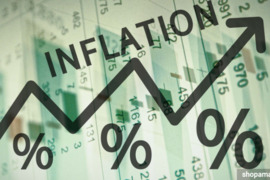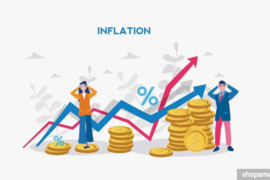Germany’s Economy Contracts in 2024. Key Factors
 Germany, the economic powerhouse of the European Union, faced a contraction in 2024, signaling growing challenges for the country’s financial stability. According to the Federal Statistical Office of Germany (Destatis), the GDP shrank by 0.2% in the fourth quarter, compared to the previous quarter. On an annual basis, the economy also saw a 0.2% decline in the October-December period, raising concerns about stagnation in Europe’s largest economy.
Germany, the economic powerhouse of the European Union, faced a contraction in 2024, signaling growing challenges for the country’s financial stability. According to the Federal Statistical Office of Germany (Destatis), the GDP shrank by 0.2% in the fourth quarter, compared to the previous quarter. On an annual basis, the economy also saw a 0.2% decline in the October-December period, raising concerns about stagnation in Europe’s largest economy.
What Led to Germany’s Economic Downturn?
Several factors contributed to Germany’s economic contraction, including high inflation, weak consumer demand, rising interest rates, and external trade disruptions. Below are the key reasons behind this slowdown:
Persistent Inflation and High Interest Rates
Inflation has remained a significant challenge for Germany, eroding consumer purchasing power and reducing household spending. The European Central Bank (ECB) raised interest rates multiple times throughout the year to combat inflation, making borrowing more expensive for both businesses and individuals. This led to a decline in investments and consumption, further slowing economic growth.
Weak Industrial Production and Manufacturing Struggles
Germany’s economy relies heavily on its industrial and manufacturing sectors, particularly in automotive, machinery, and chemicals. However, supply chain disruptions, high energy costs, and weaker global demand have severely impacted these industries. The transition to green energy policies has also led to significant shifts in the economy, as industries struggle to adapt to stricter environmental regulations and rising production costs.
Declining Exports and Global Trade Tensions
As one of the world’s top exporters, Germany has been hit hard by global economic uncertainties. The slowdown in key markets, including China and the United States, has affected demand for German goods. Additionally, ongoing geopolitical tensions, including trade restrictions and economic sanctions, have disrupted supply chains and increased costs for businesses reliant on international trade.
Energy Crisis and Rising Costs
Germany’s energy-intensive industries have been particularly vulnerable due to the high cost of electricity and gas. The country’s decision to phase out nuclear power and reduce its reliance on Russian gas has led to higher energy prices, putting pressure on businesses and industrial production. Companies struggling with rising operational costs have had to cut back on production or relocate to regions with more stable energy supplies.
shopamat.com




 How to Reset Your Mind ? Here is Practical Strategies
How to Reset Your Mind ? Here is Practical Strategies ASUS Unveils a Scent-Infused Mouse for an Enhanced User Experience
ASUS Unveils a Scent-Infused Mouse for an Enhanced User Experience 6 High-Paying Digital Services You Can Offer as a Freelancer for Instant Income
6 High-Paying Digital Services You Can Offer as a Freelancer for Instant Income Understanding Inflation . What Causes, Effects ?
Understanding Inflation . What Causes, Effects ? Chinese Engineers Unveil World's First Forward-Flipping Humanoid Robot
Chinese Engineers Unveil World's First Forward-Flipping Humanoid Robot How to Maximize Productivity When You Work Best in the Afternoon
How to Maximize Productivity When You Work Best in the Afternoon Casio G-Shock Introduces Eco-Friendly Watches Made from Recycled Materials
Casio G-Shock Introduces Eco-Friendly Watches Made from Recycled Materials Proven Strategies to Monetize Your Online Tutoring Content
Proven Strategies to Monetize Your Online Tutoring Content